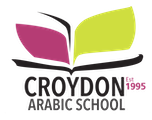Arabic is in great demand and there’s a shortage of well-qualified speakers.
As one of the six official UN languages, Arabic can be a real boost for careers in international organisations and diplomacy, as well as journalism, tourism and international trade, particularly the energy industry. Ten universities in the UK have Arabic departments: if you’re considering your future career, a joint honours degree with Arabic is an excellent choice if you want to develop skills that set you apart.
One common written language, countless spoken varieties
Arabic is not the language of one country, of course, but of 26 nations across North Africa and the Middle East. It is a language that unites at least 400 million native speakers in the Arab world, as well as being something of a lingua franca of Muslims worldwide.
Arabic is deeply entwined with our European heritage
Culturally speaking, modern Europe wouldn’t be what it is today without the impact of medieval Arab civilisation, which had preserved, translated and expanded on texts in various science and humanities disciplines. For example, it is largely due to the scholars of Baghdad’s House of Wisdom that much of Aristotle survived to be reintroduced in Europe.
Source: Arabic: more accessible than you think | British Council



